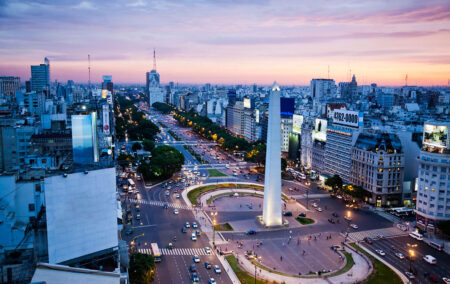The left-wing Peronist movement recaptured the Argentinian Presidency last month, when their candidate won a Presidential election in that country. Alberto Fernandez of the Justicialist Party (the largest Peronist party in the country) secured 48% of the vote. His rival, incumbent Mauricio Macri of the Republican Proposal party, managed 40%. This is the first time in Argentinian history that an incumbent has failed to win re-election.
Argentina has a fairly unusual system to elect Presidents. A candidate does not have to win 50% of the vote to avoid a run-off. A candidate must either win 45% to avoid a run-off, or win 40% but be at least ten percentage points ahead of their nearest rival. Fernandez, with 45% of the vote, thus fairly easily managed to win in a single round of balloting.
Macri had been elected on a pro-business platform in 2015, but under his governance GDP has declined and the country received a $57 billion bailout from the International Monetary Fund, the largest in history.
Fernandez’s running mate was Christina Kirchner, a former President and former First Lady (her late husband, Nestor, had previously also served as President).
Some will be worried about the direction Argentina will now take under the leadership of Fernandez and Kirchner. Under Kirchner there had been currency controls and the country had fudged its economic data. She also nationalized the country’s pension funds. However, she also championed a number of progressive policies, legalizing same-sex marriage and making it easier for transgender people to change their gender on official documentation.
She is also under investigation for alleged corruption as well as for allegedly obstructing enquiries into a 1994 terrorist bombing in Buenos Aires, which had targeted Argentina’s Jewish community.
Fernandez and Kirchner will take office in December but they have a tough challenge in turning Argentina around. Inflation is over 50% and the economy contracted by 2.5% in the first half of this year.

